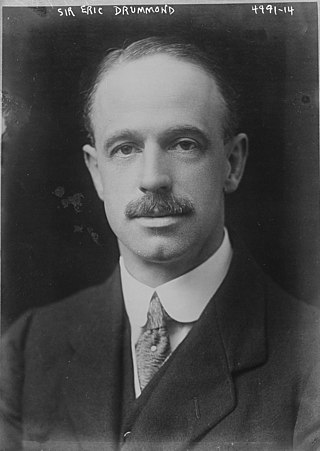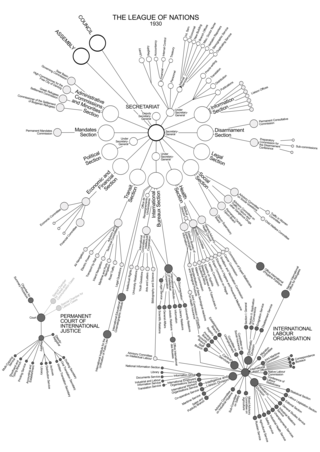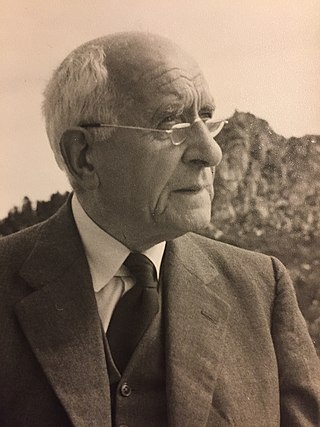Related Research Articles

Sir Robert Laird Borden was a Canadian lawyer and politician who served as the eighth prime minister of Canada from 1911 to 1920. He is best known for his leadership of Canada during World War I.

The Air Ministry was a department of the Government of the United Kingdom with the responsibility of managing the affairs of the Royal Air Force, that existed from 1918 to 1964. It was under the political authority of the Secretary of State for Air.

The Cabinet of the United Kingdom is the senior decision-making body of His Majesty's Government. A committee of the Privy Council, it is chaired by the Prime Minister and its members include Secretaries of State and other senior ministers. Members of the Cabinet are appointed by the Prime Minister and are by convention chosen from members of the two houses of the Parliament of the United Kingdom, the House of Commons and the House of Lords.

The Ministry of Defence is the department responsible for implementing the defence policy set by His Majesty's Government, and is the headquarters of the British Armed Forces.
A cabinet secretary is usually a senior official who provides services and advice to a cabinet of ministers as part of the Cabinet Office. In many countries, the position can have considerably wider functions and powers, including general responsibility for the entire civil service.

The Board of Trade is a British government body concerned with commerce and industry, currently within the Department for Business and Trade. Its full title is The Lords of the Committee of the Privy Council appointed for the consideration of all matters relating to Trade and Foreign Plantations, but is commonly known as the Board of Trade, and formerly known as the Lords of Trade and Plantations or Lords of Trade, and it has been a committee of the Privy Council of the United Kingdom. The board has gone through several evolutions, beginning with extensive involvement in colonial matters in the 17th century, to powerful regulatory functions in the Victorian Era and early 20th century. It was virtually dormant in the last third of the 20th century. In 2017, it was revitalised as an advisory board headed by the International Trade Secretary who has nominally held the title of President of the Board of Trade, and who at present is the only privy counsellor of the board, the other members of the present board filling roles as advisors.
A war cabinet is a committee formed by a government in a time of war to efficiently and effectively conduct that war. It is usually a subset of the full executive cabinet of ministers, although it is quite common for a war cabinet to have senior military officers and opposition politicians as members.

Sir Howard Kingsley Wood was a British Conservative politician. The son of a Wesleyan Methodist minister, he qualified as a solicitor, and successfully specialised in industrial insurance. He became a member of the London County Council and then a Member of Parliament.

Maurice Pascal Alers Hankey, 1st Baron Hankey, was a British civil servant who gained prominence as the first Cabinet Secretary and later made the rare transition from the civil service to ministerial office. He is best known as the highly-efficient top aide to Prime Minister David Lloyd George and the War Cabinet, which directed Britain during the First World War.
The Minister of Munitions was a British government position created during the First World War to oversee and co-ordinate the production and distribution of munitions for the war effort. The position was created in response to the Shell Crisis of 1915 when there was much newspaper criticism of the shortage of artillery shells and fear of sabotage. The Ministry was created by the Munitions of War Act 1915 passed on 2 July 1915 to safeguard the supply of artillery munitions. Under the very vigorous leadership of Liberal party politician David Lloyd George, the Ministry in its first year set up a system that dealt with labour disputes and fully mobilized Britain's capacity for a massive increase in the production of munitions.

James Eric Drummond, 7th Earl of Perth,, was a British politician and diplomat who was the first Secretary-General of the League of Nations (1920–1933).
The Committee of Imperial Defence was an important ad hoc part of the Government of the United Kingdom and the British Empire from just after the Second Boer War until the start of the Second World War. It was responsible for research, and some co-ordination, on issues of military strategy.

The 1918–19 British police strikes in the United Kingdom resulted in the British government putting before Parliament its proposals for a Police Act, which established the Police Federation of England and Wales as the representative body for the police. The Act barred police from belonging to a trade union or affiliating with any other trade union body. This Act, drafted and passed into law, was passed in response to the formation of the National Union of Police and Prison Officers (NUPPO). A successful police strike in 1918 and another strike in June 1919 led to the suppression of the union by the government. On 1 August 1919, the Police Act 1919 passed into law. Only token opposition from a minority of Labour Members of Parliament was voiced in Parliament.

The Ministry of Labour was a British government department established by the New Ministries and Secretaries Act 1916. It later morphed into the Department of Employment. Most of its functions are now performed by the Department for Work and Pensions.

The Ministry of the Interior (MIR) is a department of the Government of Spain responsible for public security, the protection of the constitutional rights, the command of the law enforcement agencies, national security, immigration affairs, prisons, civil defense and road traffic safety. Through the Undersecretariat of the Interior and its superior body, the Directorate-General for Internal Policy, the Ministry is responsible for all actions related to ensuring political pluralism and the proper functioning of electoral processes.

The League of Nations was established with three main constitutional organs: the Assembly; the Council; the Permanent Secretariat. The two essential wings of the League were the Permanent Court of International Justice and the International Labour Organization.

The Ministry of Labour and Social Economy (MITES) is the department of the Government of Spain responsible for planning and carrying out the government policy on labour relations and social economy.

William George Stewart Adams was a Scottish political scientist and public servant who became principal of an Oxford College and a leader in the fields of voluntary service and rural regeneration.

The Department of the Permanent Secretary also formally known as the Department of the Permanent Secretary to the Admiralty or the Department of the Secretary was the Civil Service department responsible for the control, direction and guidance of all administrative functions of the British Admiralty from 1702 to 1964, it was headed by the Permanent Secretary to the Admiralty.
The United Kingdom and the League of Nations played central roles in the diplomatic history of the interwar period 1920-1939 and the search for peace. British activists and political leaders helped plan and found the League of Nations, provided much of the staff leadership, and Britain played a central role in most of the critical issues facing the League. The League of Nations Union was an important private organization that promoted the League in Britain. By 1924 the League was broadly popular and was featured in election campaigns. The Liberals were most supportive; the Conservatives least so. From 1931 onward, major aggressions by Japan, Italy, Spain and Germany effectively ruined the League in British eyes.
References
- ↑ Newell, F. H. (1919). "Reconstruction Agencies". American Political Science Review. 13 (1): 1–16. doi:10.2307/1945794. ISSN 0003-0554. JSTOR 1945794.
- 1 2 Spotlight on History The (British) National Archives
- ↑ "Biography; Who Was Who"